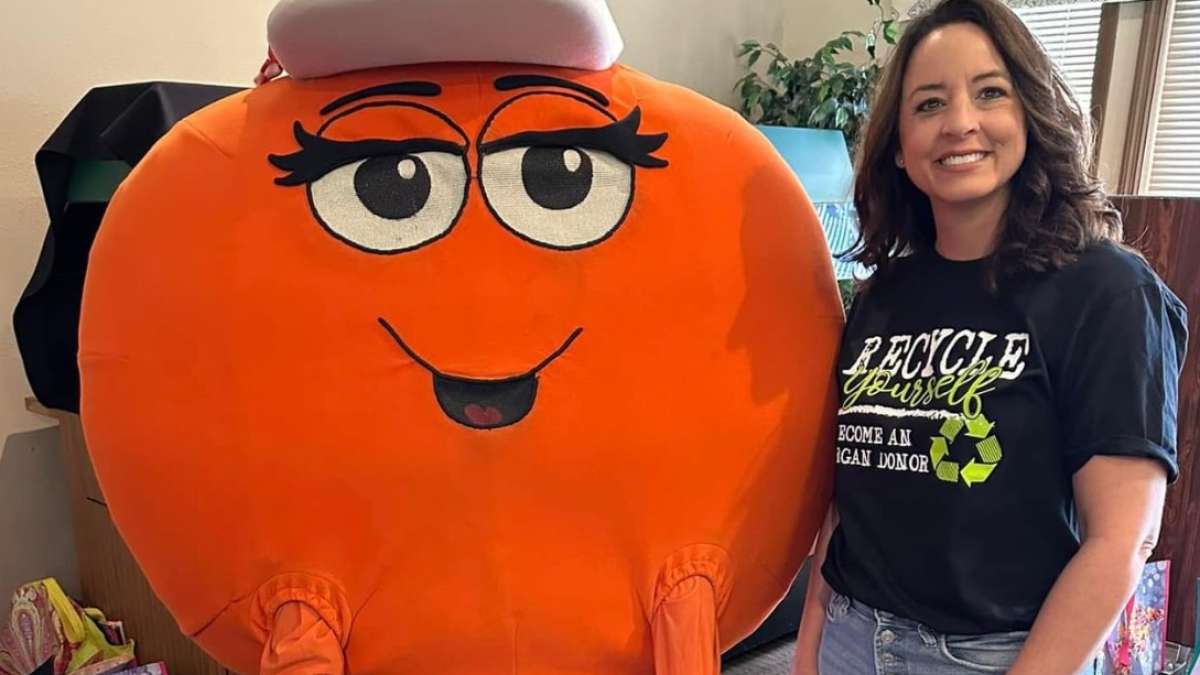In the spring of 2023, a group of friends asked Rhonda Bravick, a supervising clinical hygienist at Northcentral Technical College (NTC), to join them for a scavenger hunt. She agreed because it sounded like a fun way to spend a Saturday, unaware at the time of the profound impact it would have on her life.
As it turned out, the scavenger hunt was a part of a fundraiser for Donate Life Wisconsin, an alliance of organizations and individuals with the goal of increasing the number of organ donors and saving lives. After the scavenger hunt, the event included a dinner and guest speakers. Two women shared that after tragically losing their children, they chose to donate their organs.
“It was just so moving,” Rhonda said. “I was sitting there with my daughter, thinking how can they possibly be doing this? They saw something greater out of the loss of their children.”
She immediately wondered what she could do to help.
She quickly learned that there is a great need for donated kidneys, and unlike many other organs, a kidney donation can come from a living donor. She went home that night and told her family that she wanted to become a donor. She stayed up until midnight that first evening doing research.
“I felt so compelled,” Rhonda said. “I wanted to help. I couldn’t close my eyes after they’d been opened to such a great need.”
According to the National Kidney Foundation, over 100,000 people are on the waiting list for a kidney transplant, but only 17,000 people receive one each year. A living donor is put through extensive testing to make sure they are a suitable donor and can live with just one kidney. Rhonda spent an entire week at Mayo Clinic in Rochester, Minnesota, undergoing numerous tests before she was approved to be a donor.
By the time she was approved, winter was approaching. Because winter weather can be dangerous for travel and inconducive for recovery, she decided to schedule her donation for the spring. She donated her kidney on March 15, 2024.
Most commonly, living kidney donors do so because someone they know is in need of a kidney. However, Rhonda didn’t know anyone who needed a kidney. She was a non-directed donor; she does not know who received her kidney and maybe never will.
“My recipient doesn’t want to know, I am okay with that,” Rhonda said. “It is a gift I wanted to give to help someone else. To expect that to be repaid would diminish that gift.”
She knows the kidney and the recipient are doing well, and that is enough.
Initially, her family and friends thought she was crazy, and whenever she tells people she donated a kidney to a stranger, their response is often that they could never do that.
“I don’t think of myself as anything special,” she said. “I just thought, I have two kidneys and can donate one and still live a healthy life.”
Even still, Rhonda realizes that not everyone is willing or able to donate a kidney. There are still ways to help make a difference. People can volunteer at events, help raise awareness for the need for organ donors, and register to become organ donors.
In April, a year after she attended the fundraiser, Rhonda was invited to speak at the same event that had originally inspired her. She had the opportunity to share her story and her experience as a living donor. Although she can’t personally donate a kidney again, she hopes to continue raising awareness and helping people.
“If I could inspire just one person, maybe they could inspire one person, and they could inspire one person,” she said. “If I had to do it again, I 100% would. To give someone the chance at a healthy life is life changing.”
